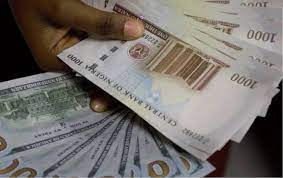By Ibrahim Ramalan
Abuja
The economic impact of the deadly Ebola virus may cost West Africa £20bn, experts have warned.
The World Bank said that in a worst case scenario the wider region will suffer a loss of 3.8%, with Liberia at risk of losing almost 12%.
Sierra Leone, which was forecast to have one of the top 10 growth economies globally in 2014, is also expected to see significant impact
World Bank president Jim Yong Kim said: “The international community now must act on the knowledge that weak public health infrastructure, institutions and systems in many fragile countries are a threat not only to their own citizens.
“They are also to their trading partners and the world at large.”
The deadly spread of the disease is the worst health scare since the outbreak of AIDS in the 1980s, according to a US official, overtaking the SARS crisis a decade ago.
“I would say that in the 30 years I’ve been working in public health, the only thing like this has been AIDS,” US Centers for Disease Control (CDC) and Prevention director Thomas Frieden said.
“It’s going to be a long fight,” he told the heads of the United Nations, World Bank and International Monetary Fund gathered in Washington for an emergency summit.
The UN Food and Agricultural Organisation (FAO) also said the Ebola crisis may impact food security.
This comes despite continuing price decline for most food items globally, bumper wheat production and huge rice stockpiles.
The FAO said the outbreak was a “hot spot” of concern since it was disrupting markets and farming activities “affecting food security and large numbers of people”.
Meanwhile, the cost to other countries is yet to be accurately calculated.
Tour firms and airlines have already seen share prices fall as fears spread.
But specialist firms providing goods and services to help overcome the outbreak have seen benefits.
Phoenix Air Group, the world’s only specialised highly contagious air transport service using Gulfsteam III jets, has been swamped with exclusive-use bids.
The UK, Canada, Mexico, Japan and the UAE have all tried to establish exclusive contracts, according to a US Department of State briefing document seen by Sky News.
The UN and World Health Organisation also tried to secure deals with Phoenix, the document revealed.
In response, the US offered Phoenix a $5m (£3m) six-month contract for medevac services for American government employees who may become infected in-country.
And suppliers of white anti-contamination suits have seen orders spike as governments increase their response.
Britain’s Department for International Development has boosted suit orders from a Hull-based contractor, from 50,000 a month to 100,000.
The suits cost around £25 each and are worn for about one hour, before the contamination risk becomes too great.



